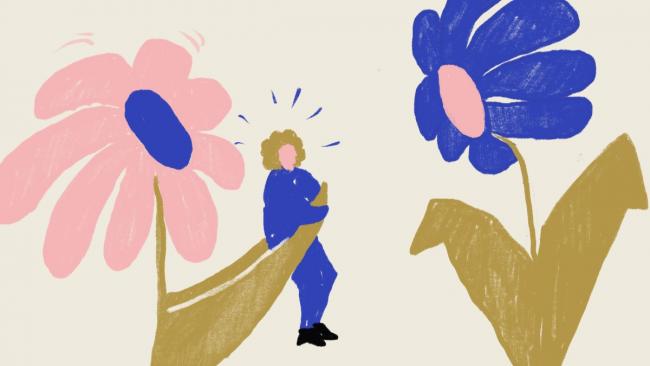The Othering & Belonging Institute at the University of California, Berkeley advances groundbreaking research, policy, and ideas that examine and remediate the processes of exclusion, marginalization, and structural inequality—what we call othering—in order to build a world based on inclusion, fairness, justice, and care for the earth—what we call belonging.
The concept of belonging describes more than a feeling of inclusion or welcome. Its full power is as a strategic framework for addressing ongoing structural and systemic othering, made visible, for example, in the wide disparities in outcomes found across a variety of sectors and identity groups.Belonging, as OBI defines it, means having a meaningful voice and the opportunity to participate in the design of political, social, and cultural structures that shape one’s life — the right to both contribute and make demands upon society and political institutions. At its core, structural belonging holds a radically inclusive vision because it requires mutual power, access, and opportunity among all groups and individuals within a shared container (such as a society, organization, club, etc).
To learn more about belonging, and some of the strategies and tools like Targeted Universalism, bridging, and narrative power that you’ll need to get there, watch our director john a. powell explain the concept at our 2019 conference.
The Institute
We have been doing this work of building belonging since 2012—first, under the name of the Haas Institute for a Fair and Inclusive Society and now under our identity as the Othering & Belonging Institute at UC Berkeley.
The Institute grew out of a core group of engaged scholars at UC Berkeley who had organized around thematic topics related to marginalization and inclusion, including disability studies, public health, race and education, LGBTQ citizenship, religious pluralism, among others. Out of these clusters a formal center was born in 2012, made possible by a foundational grant from the Walter & Evelyn Haas, Jr. Fund. Support from the Haas Jr. Fund, and other members of the Haas family, endowed seven faculty chairs to lead each of the research clusters, and brought john a. powell to UC Berkeley to lead the Institute as its inaugural director, where he holds the eighth endowed chair.
The Institute was and remains unique in academic institutions for the breadth of its vision, the expansiveness of its influence in a range of sectors, and the scale of its scholarship and structure.
From the beginning, our understanding of marginalization and exclusion was informed by a wider view of how groups are situated in society based upon race, gender, sexual orientation, ability, and religion, and how policy, legal, and cultural interventions can remediate these cleavages and facilitate more equitable outcomes. We have consistently insisted on recognizing the centrality of how structures and systems work to create or exacerbate othering or belonging. This orientation has given us key insights into dynamics such as structural racism, mass incarceration, the crisis of affordable housing, corporate misalignment, public finance, among other broad issues. Throughout our work, we push for reforms that can unlock transformative change, prioritizing those who are the most targeted or marginalized, while doing work that benefits all.
Our Main Goals
Advancing multidisciplinary research, analysis, policy, and strategic narrative
Our research examines the structural and cultural impediments to opportunity that limit full inclusion and block benefits derived from an equitable society. We address complex and intertwined issues holistically, cultivating research contributions and collaboration across fields. Research is informed by understanding how structures and systems work across domains to produce exclusion and inequality, and inclusion and equality.
Building relationships among diverse groups and across disciplines
We align our research efforts with the needs of community organizers, policymakers, and other stakeholders. Community-centered collaborations help inform our research while our scholarship helps community partners and policymakers with strategies and policy, which increase our mutual effectiveness at many levels. This type of relationship-building moves beyond just coalitions toward deeper synergy, is strengthened by time and interaction, and ultimately yields a greater capacity to effect change.
Employing communications and culture to illuminate research and impact policy
To be most successful, we must engage the conscious mind and the unconscious mind, which is less empirical, less fact-driven, highly social, and more animated by stories, values, and metaphors. This communications and cultural work goes beyond messaging to engage in a battle of big ideas, to take command of how a debate, such as the entire concept of public space or citizenship, is framed in public discourse in order to construct and employ new narratives.
Making a difference
Our model allows us to work not only in a different way but also at a different scale, countering a lack of capacity that has made many of our most important efforts seem intractable. Our resources are also devoted to a few “game changers”— issues that if won or lost will have a profound impact on society.
of our Vision statement, or click here to view our impact report for the work of the Institute over our first seven years since 2012.




